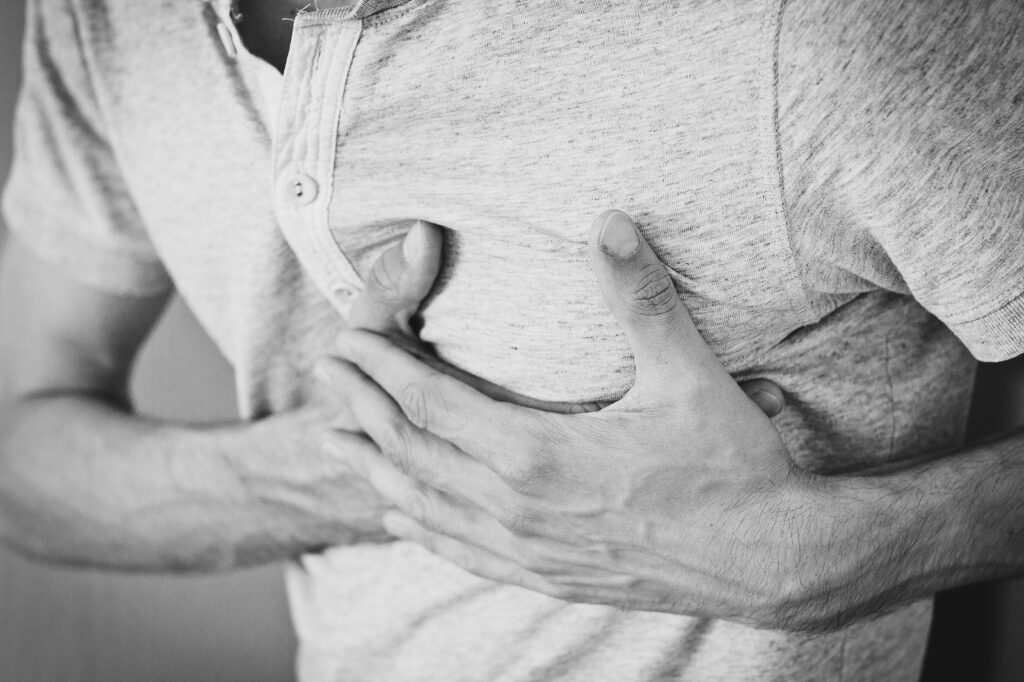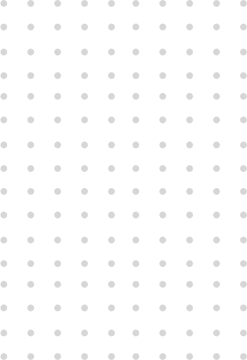Heart Diseases
Heart diseases generally termed cardiovascular diseases target the heart and the blood vessels. There are a number of diseases that either remains asymptomatic or symptomatic but are affecting cardiovascular health. Problems associated with heart disease are:
- Heart valve disease
- Abnormal heart rhythms
- Narrowing of blood vessels
- By birth cardiovascular disorders
- Heart pumping (squeezing and relaxing) difficulty
What are heart diseases?
Different conditions associated with heart diseases are mentioned below:
Arrhythmia
Abnormality in the electrical conduction system of the heart would cause abnormal heart rates and rhythms.
Valve diseases
It includes valve leaking and tightening. This is due to malfunctioning of the heart valves, which are responsible for blood flow through the chambers.
Coronary Artery Disease
Blockage in the blood vessels of the heart may lead to coronary artery disease.
Heart Failure
Alteration in the heart pumping mechanism causes shortness of breath and fluid build-up in the heart. It may lead to heart failure
Peripheral Artery Disease
Any pathological changes in the peripheral blood vessels i.e of legs, arms, or abdominal organs cause this disease. Commonly peripheral blood vessels became narrow or blocked.
Aortic Disease
Aorta is a large blood vessel supplying blood from the heart to the brain and other body parts. Its dilation or aneurysm causes aortic disease.
Congenital Heart Failure
These are referred to the heart problems since your birth. It may affect various parts of your heart.
Pericardial Disease
The heart lining is known as the pericardium. Any abnormality in the pericardium may lead to pericardial effusion and pericarditis.
Cerebrovascular Disease
Narrowing or blockage of the blood vessels supplying blood to the brain may cause cerebrovascular disease.
Deep Vein Thrombosis
Any pathological abnormality in the veins supplying blood from different body parts including the brain to the heart.
What is Ischemic Heart Disease?
The development of plaque in the arteries causes hindrances in supplying oxygen to the heart. This medical condition is termed ischemic heart disease or coronary artery disease. Narrowing of arteries due to plague deposition ended up in cardiac arrest. Patients suffering from this disease would have chest pain or shortness of breath.
What Causes Heart Disease?
There are multiple causes of heart disease depending upon the portion affected. Atherosclerosis (plaque formation in the arteries) leads to peripheral and coronary artery disease. Aging, infections, and rheumatic disease can cause valve disease.

Risk Factors For Heart Diseases
Risk factors for cardiovascular disorders are as follows:
- Family history
- Diabetes
- Hypertension (high blood pressure)
- Hyperlipidemia (high cholesterol)
- Tobacco use
- Lack of exercise
- Age
- Obesity
- Sedentary lifestyle
- High sodium or sugar in the diet
- Alcohol overuse
- Gestational diabetes
- Toxemia
- Preeclampsia
- Chronic kidney disease
- Chronic inflammation
- Autoimmune diseases
What Are the Symptoms of Heart Disease?
Symptoms of cardiovascular disorders are caused depended so shall be discussed separately:
Symptoms of Abnormal Heart Rhythm
- Chest pain
- Sweating
- Palpitations (pounding or racing heart)
- Shortness of breath
- Lightheadedness
Symptoms of Heart Valve Diseases
- Chest pain
- Dizziness
- Tiredness
- Shortness of breath
- Heart murmur
Symptoms of Blockage in Blood Vessels
- Indigestion
- Heartburn
- Neck pain
- Exhaustion
- Shortness of breath
- Dizziness
- Vomiting or nausea
Symptoms of Heart Pumping Disorders
- Exhaustion
- Lower body swelling
- Shortness of breath
Symptoms of Congenital Heart Problems
- Inability to do exercise
- Heart murmur
- Shortness of breath
Symptoms Associated With Pericardium Pathologies:
- Exhaustion
- Chest pain
- Lower body swelling
- Difficult breathing
Can You Run With Your heart Disease?
A regular exercise routine is very helpful in treating cardiac disorders. A moderate-intensity exercise proves to be beneficial for having a healthy heart. Patients suffering from obesity, high blood pressure, etc can go for
Heart Diseases and Triglycerides
Triglycerides are the key factor to monitor heart health. A mechanism in the body named denovogenesis involves the conversion of glucose/fructose to triglycerides. So a high-carb diet elevates the triglycerides level in the body.
High levels of triglycerides may lead to the thickening and hardening of arteries (arteriosclerosis). Thus increasing the risk of heart attack, stroke, and other heart diseases. The normal level of triglycerides is less than 150 mg/dL. A high-carb diet and insulin resistance are the main causes of it.
Diagnosis
How To Know Whether You Have Heart Disease?
Your healthcare practitioner or cardiologist will conduct a physical exam and inquire about your symptoms, family history, personal health, and exercise schedule.
Diagnostic Tests For Heart Diseases
Your cardiologist will suggest you perform any of the following tests for confirmatory diagnosis:
Blood Work
Complete blood picture (CBC), lipid profile, etc would aid in measuring cholesterol levels for
cardiovascular health status.
Electrocardiogram (ECG)
It records and measures the heart’s electrical activity.
Ambulatory Monitoring
Portable device to monitor heart rate and rhythm
Echocardiogram:
Sound waves are used for heartbeat and blood flow imaging.
Cardiac CT
X-rays were performed to generate heart and blood vessel imaging.
Cardiac MRI
Magnets and radio waves are used to create heart imaging.
Exercise tolerance tests (ETT)
It is a stress test to judge heart performance under stressed conditions.
Cardiac Catheterization
A thin hollow tube (catheter) is passed to the heart to measure blood flow rate and pressure in the heart.
How to cure/treat heart diseases naturally?
Heart diseases can be treated naturally by lifestyle modification. Eating a healthy diet and regular aerobic exercise and quitting smoking do have fruitful effects on your heart health.
Treatment Plans For Heart Diseases:
Treatment protocols are cause-dependent:
Medications
Your doctor has to prescribe certain medicine for normalizing cardiac activity. Medicine given would depend on the underlying cause.
Surgeries
Where medicines fail to work, you have to go for surgical protocol. These includes., minimally invasive heart surgery, ablations, open-heart surgery, or cardioversion.
Cardiac Rehabilitation
Exercise program under your cardiologist’s supervision for regaining your heart strength.
Active Surveillance
It involves regular monitoring and follow-ups of the patient without prescribing any medicine or surgery protocol.
How Can I Prevent Heart Disease?
Certain conditions like congenital heart disease cannot be prevented. But lifestyle alteration may reduce the risk of many heart disorders. The following measures should be adopted to reduce the risks of cardiovascular disorders.
- Treating other health conditions like diabetes, high blood pressure, and high cholesterol levels.
- Avoid tobacco products
- Eat a diet low in salt
- Weight loss for reducing weight
- At least 30-60 minutes of exercise per day
- Manage and reduce stress
How Long Can You Live With Heart Disease?
Many patients suffering from cardiovascular disorders can have a healthy life. With regular follow-ups with cardiologists, along with dietary management and exercise you can live like a physically fit individual.
What Are The Complications Of Cardiac Disorders?
If heart diseases remain unnoticed and untreated, it may lead to serious health hazards:
- Stroke
- Heart attack
- Aortic sisection
- Acute limb ischemia (abrupt blockage of peripheral arteries)
- Sudden cardiac death
When Should I Visit My Cardiologist?
Cardiovascular diseases could easily be treated if diagnosed in the early stages. If you have notices any of the following signs do visit your cardiologist:
- Syncope (fainting)
- Chest pain
- Severe and sudden shortness of breath
- Tearing or ripping back pain
- Numbness or pain in the extremities
Heart Diseases And Triglycerides
Triglycerides are the key factor to monitor heart health. A mechanism in the body named denovogenesis involves the conversion of glucose/fructose to triglycerides. So a high-carb diet elevates the triglycerides level in the body. High levels of triglycerides may lead to the thickening and hardening of arteries (arteriosclerosis). Thus increasing the risk of heart attack, stroke, and other heart diseases. The normal level of triglycerides is less than 150 mg/dL. A high-carb diet and insulin resistance are the main causes of it.
Dr.Waseem’s Treatment For Heart Disease
Dr.Waseem being a dietitian believes in treatment through diet (ilaj bil ghiza). There are several cardiovascular diseases that have multiple causes so we have to treat the cause to treat a disease. Diseases affecting the heart are mainly due to lack of exercise, dietary intake (high-carb diet), high triglycerides levels, metabolic diseases, etc. A healthy lifestyle is very beneficial for their cure and prevention. They include:
Restrict Sugar And Refined Carbohydrates Intake
Carbohydrates including sugars, white flour, or fructose from fruits should be restricted. Carbohydrates have high insulin index values so can raise insulin resistance and eventually triglycerides in the body.
Intermittent Fasting
Intermittent fasting is also helpful in lowering insulin resistance and triglycerides. It is also beneficial for treating various risk factors of cardiovascular diseases like., obesity, diabetes, fatty liver, etc.
Regular Exercise
Regular exercise of at least 30min daily can reduce the chances of having heart disease. Healthy physical activity woud lower triglycerides and enhances good cholesterol. It also reduces belly fat and enhances lean muscles.
Weight Loss
Weight loss by cutting calories is helpful in cardiovascular diseases. Excessive calories are converted into triglycerides and stored as fat in the body.
Selecting Healthier Fats
Fats from the plant sources like olive oil or canola oil. Omega-3 fish oil having healthy fat leads to a healthier heart. Avoid cooking oils.
Limit Your Tobacco Or Alcohol Intake
Alcohol is a calorie-rich product. It is also high in sugar so should be avoided
Ketogenic Diet
A therapeutic ketogenic diet plan formulated by Dr.Waseem is very beneficial for treating various heart diseases. It involves a low-carb and high-fat diet. This diet along with exercise can reverse diabetes type 2 and various metabolic syndromes.
So, cardiovascular diseases are ailments affecting the heart and blood vessels. If they remain untreated, they can end up with strokes and heart attacks. Cardiac arrests are very common nowadays even among our youth too. So lifestyle modifications and medicinal intake should be followed to manage cardiovascular diseases. Routine checkups after every six months are helpful in early disease diagnosis and effective treatment. Once the disease is being treated you can live a healthy and active life.


An Ultimate Solution to your Fitness & Health Problems
The Ginnastic Health Center In Islamabad is a state-of-the-art clinic with one of its kind modern health services in Islamabad that is offering a complete range of treatments for a variety of health care concerns including chronic illnesses and pain management.
